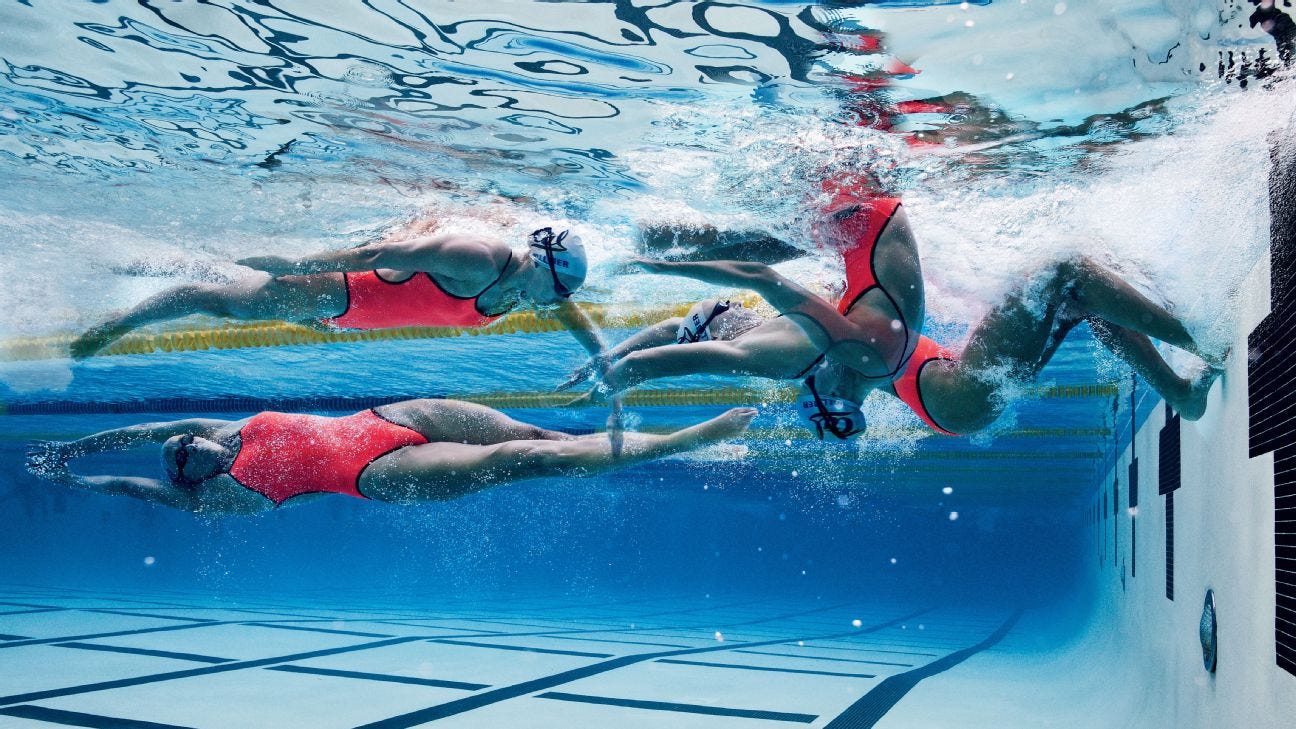What do you do when nobody is watching?
At swim practice last night we had to do a set where we worked on our turns at the wall, paying extra attention to our breath. This is a weak area for me so there were specific things for us to pay attention to: not taking a breath into the turn, doing three kicks underwater, and taking additional strokes before your first breath.
Each of these tips improves your speed and technique, but they suck. They are hard. You’re holding your breath just a little bit longer while your body is telling you you're out of oxygen. You start panicking a little bit and try to rush through the stroke to get that first sweet sip of air.

But here's the thing, the coach can't see everyone. So why even do it? He can't tell who is actually trying to do all of these things and who isn't. It’s up to us to do the hard work of getting better.
Motivation starts the race, but self-discipline ultimately crosses the finish line. (Steve Pavlina)
Self-discipline is one of the key drivers behind high performance. No matter what you’re trying to achieve, people can't do things for you. They can’t diet for you, do a workout for you, or even do your homework. I mean they can, but does that even help you?
It will always be up to you to do the things necessary to achieve whatever goals you set for yourself. I’m not going to spend too much time getting all ra-ra-self-discipline on you, there’s enough of that on YouTube.
Instead, I’ll try to help make it a bit easier.
Setting yourself up for success
I used to have this perspective that achieving things through a sheer act of will and self-discipline was some kind of moral virtue. As if forcing myself to do something made me a better person. And so for a long time, I tried to exclusively will myself into something. I would try to resist the urge to order bubble tea whenever I was craving it (always) or try to do a challenging set on my own in the pool.
But this is a dumb way to approach life; you don't have to do things like this.
Instead, I joined a swim team, deleted DoorDash from my phone (🥲), and started blocking distracting websites while trying to focus.
Your goal is the result, not the amount of self-discipline you used to get there. So why not set yourself up for success?
The key is, if you really want to make something happen, don’t leave it to self-discipline. If you really want to make something happen, create an external discipline. (David Meister)
Here are three ways I like to externalize self-discipline:
Design your environment: Our goal is to make it easy to follow your good habits and hard to fall into your bad ones. Set up your space and life to make this more likely! Get rid of junk food in the house or keep your floss on the counter. The most important one for a lot of people is to find or create a distraction-free area to study or work.
Set yourself rules: It's much easier to make a rule you stick to than it is to constantly make a decision. If you have a rule like "I don't eat dessert" or "I don't drink alcohol", there's no need to think each time the opportunity presents itself and tests your willpower. Of course, you still need to stick to your rule, but there's less of a need to evaluate the choice on a case-by-case basis. Save your willpower for things that really matter.
Find accountability: Get friends or strangers to hold you accountable. Check in with a friend every week about the progress you're both trying to make. Get a coach who watches you do whatever it is you're trying to improve. It’s easier to let yourself down than someone else, so use that to your advantage.
If you couldn’t guess, this week’s mindset was self-discipline.
Doing work, better
As it was the final weekend before the challenge was due, students had time during the session to work on their final recommendations and presentations.
In our session, we tried to help students work more effectively to make the most of the 2 hours we had. Here is a simple 3-step process on how to instantly be more productive (seriously)1:
Before starting, answer the following questions. The more specific you can be the better:
What am I working on for the next 30-min?
How will I know I'm done?
How will I start?
What might distract me? How will you mitigate these?
Do the work for 30 minutes.
Reflect:
Did you accomplish what you set out to?
What is your energy level?
What changes do you need to make?
Return to step 1.
It's pretty simple. The goal is regular feedback loops to correct your approach and also clearly set intentions for what you're trying to do. You’d be surprised how much more you can get done by just clarifying what you’re working on.
Alright, back to helping my students crush the challenge.
✌🏼
This is modeled after the Cycles structure developed by Ultraworking.

